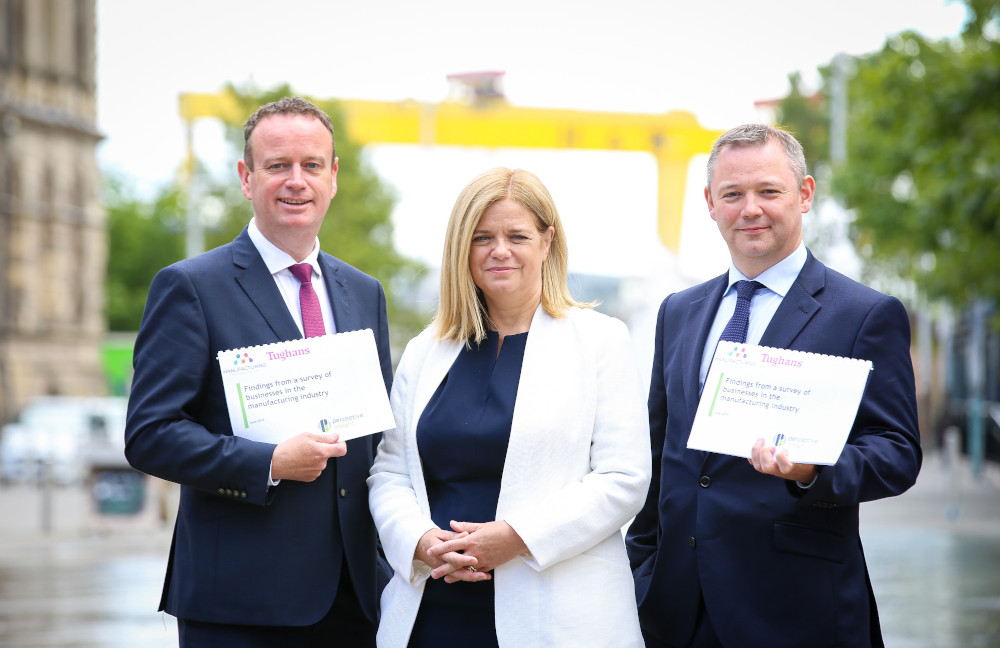NI: Tughans warns manufacturers face ‘real challenges’ and need government support

Pictured (L-R): Stephen Kelly of Manufacturing NI, Maureen Treacy of Perceptive Insight and James Donnelly of Tughans
Manufacturing firms in Northern Ireland face “real challenges” and will need government support to survive COVID-19 and Brexit, Tughans has warned.
The firm made the comments following the findings of a new survey of 130 businesses, carried out by Perceptive Insight on behalf of Tughans and Manufacturing NI.
The most prevalent concerns among businesses were the impact or uncertainty of Brexit; reduction in demand for goods and services; political uncertainty/climate; and the cost of doing business.
A majority of firms are in decline in terms of sales, including in the Great Britain market, and while a third of companies are operating at 80 per cent capacity or more, they report that demand is slow.
Almost two thirds (65 per cent) of businesses have reported an increase in labour costs and 64 per cent believe costs and funding challenges are the biggest obstacles to implementing new technologies.
James Donnelly, partner and head of corporate at Tughans, said: “Tughans represents a significant number of manufacturing firms across Northern Ireland and beyond.
“These clients are facing real challenges at present and we are seeing an uptake in advice from our specialist teams particularly in relation to HR, contracts and banking.”
Stephen Kelly, CEO of Manufacturing NI, said: “While Northern Ireland’s private sector may be optimistic and resilient, the twin peaks of the pandemic and Brexit are eroding the confidence of many.
“This needs to be rectified urgently by the policy makers if our economy is to recover, if jobs are to be protected and created and if firms are to be saved.”
He added: “COVID-19 may be the dominating factor in much of the turbulence being experienced by companies in recent weeks and months but the spectre of Brexit has once again loomed into view with half our businesses expecting a downturn in the new year.”
According to the survey, much of this is attributed to the lack of clarity, procedures or any details on new customs processes and requirements.
“One third of Northern Ireland companies do not believe they have the capacity to deal with the complex new arrangements,” Mr Kelly said.
“For the Northern Ireland Protocol to work for our businesses, we need to see greater information and details for firms to gear up and funding to help them to prepare for the changes.”







